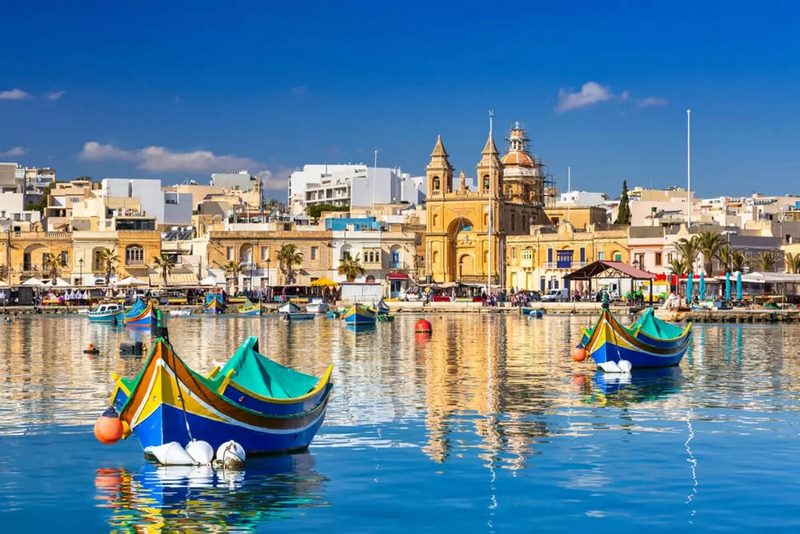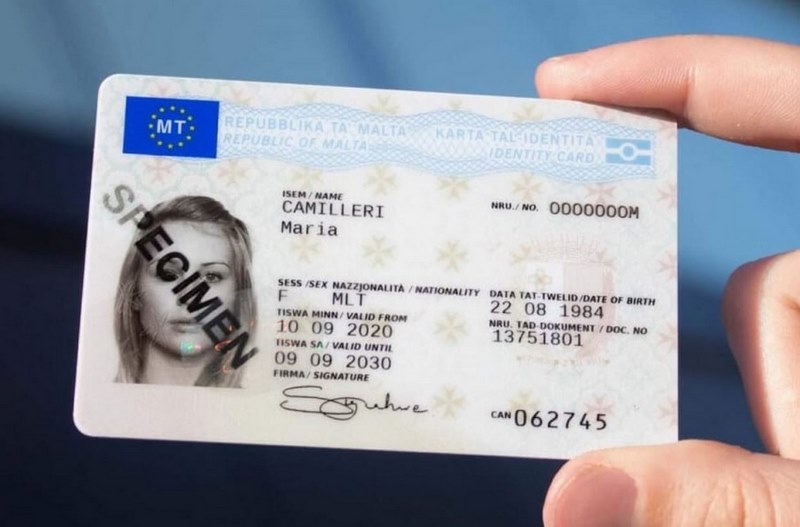Get free consultation
Fill out the form and we will contact you
Both permanent residents and students in Malta have the opportunity to experience rich culture, join an international community, and enjoy modern amenities. Malta, a beautiful island located in the Mediterranean Sea, is becoming an attractive destination for both permanent residents and students. With a high-quality education system, safe living environment, and dynamic lifestyle, Malta offers numerous opportunities for both studying and settling down. Let's explore the benefits that Malta can bring to your life and career.
Beautiful landscapes and hospitable people
Malta is a beautiful island country located in the heart of the Mediterranean Sea, specifically in the eastern basin. This archipelago includes three large islands: Malta, Comino, and Gozo. Located only about 93 km from Sicily, Italy, Malta is an attractive destination with a strategic geographical position, offering a blend of cultures from Europe, Africa, and the Middle East.
Malta is known for its high population density, with approximately 1,250 people per km². Despite its small size, the country is often referred to as a "miniature Switzerland" due to its stunning natural landscapes and fresh climate. The golden sandy beaches, majestic cliffs, and ancient architecture such as the UNESCO World Heritage city of Valletta all contribute to Malta's unique beauty.
Life in Malta is a harmonious combination of modern living and traditional values. Maltese people are known for their hospitality, friendliness, and generosity. They are always ready to help tourists visiting their country. This warmth and openness create a cozy and welcoming atmosphere, making visitors feel at home.
New format of the residence card
The differences in the duration and renewal conditions of various visas/residence permits greatly affect the life and stability of those living in Malta.
Students
Students in Malta often face restrictions on the duration and conditions for renewing their visas. Specifically:
Schengen Visa Type C: This visa allows students to stay for up to 90 days and cannot be renewed. It is usually chosen for short-term courses or exchange programs.
Schengen Visa Type D: This visa allows students to stay in Malta for up to one year and can be renewed annually. It is a common choice for students in long-term programs such as undergraduate or postgraduate studies.
Students must also comply with regulations on temporary residence registration and updating residence information:
Temporary Residence Registration: Students must register for temporary residence within three months of arriving in Malta.
Updating Residence Information: Each year, students need to update their residence information to ensure legality and continuity of their studies in Malta.
Permanent Residents
In contrast to students, permanent residents in Malta enjoy more favorable conditions regarding residence duration and renewal:
Permanent Residence Card: Permanent residents are issued a permanent residence card, allowing them to stay in Malta without worrying about frequent visa renewals.
Residence Card Renewal: Although the permanent residence card needs renewal, this process occurs only once every five years, helping permanent residents stabilize their lives and reduce the administrative burden.
Citizenship Application: After seven years of continuous residence in Malta, permanent residents have the right to apply for Maltese citizenship, opening up the opportunity to become a citizen with full benefits.
Students must adhere to work time restrictions
Students
Students in Malta must comply with strict regulations regarding work time limitations:
Maximum 20 Hours/Week: According to Maltese law, students can only work up to 20 hours per week during their studies. This applies to both part-time jobs and internships related to their study programs.
Job Options Limitations: This limitation can restrict students' job options, especially for positions requiring full-time work or needing to work many hours to fit the business's schedules.
Permanent Residents
Conversely, permanent residents in Malta have significantly more flexibility regarding work time:
No Limitations: Permanent residents do not have to adhere to any work time limitations. They have the freedom to choose how many hours to work per week based on personal needs and job requirements.
Full-Time Job Opportunities: Permanent residents can easily obtain full-time jobs and work the maximum hours required by businesses without being bound by work time regulations.
Students are not exempt from tuition fees
Tuition fees are a crucial factor that both permanent residents and students in Malta must consider when choosing an educational path for their children. This difference not only affects personal finances but also reflects the country's educational policy towards its citizens and foreigners.
Students
Students in Malta face specific tuition fees:
No Tuition Fee Exemption: Students are not exempt from tuition fees at public schools like permanent residents.
Average Tuition Fees: Tuition fees range from 5,000 to 10,000 Euros per year at universities and colleges in Malta. This is relatively high compared to many other European countries.
Scholarship Opportunities: Students can apply for scholarships from various organizations, specific cases, and the Maltese government.
Lower Study and Living Costs Compared to Permanent Residents: Although they pay tuition fees, students often have lower living and study costs compared to permanent residents due to not bearing high investment costs like local citizens.
Permanent Residents
Permanent residents in Malta enjoy favorable tuition policies:
Free Tuition at Public Schools Up to Age 15: Children of permanent residents are exempt from tuition fees at public schools from preschool to the end of middle school.
Tuition-Free Education for Children Contributing to Social Security: This helps reduce the financial burden for families with children attending university.
Higher Investment Costs Compared to Students: Permanent residents must pay higher investment costs to maintain their social benefits and contribute to Malta's economic and social development.
Living Costs Equivalent to Maltese Citizens: Permanent residents face living costs similar to any Maltese citizen, including basic expenses like housing, food, and daily services.
Employment opportunities that students need to know
Graduation is not only a significant milestone in a career but also poses challenges regarding employment opportunities, especially for students and permanent residents in Malta.
Students
After graduation, students in Malta face specific limitations and conditions when seeking employment:
6-Month Stay Extension to Find Work: After completing their studies in Malta, students are granted an additional 6-month stay to find suitable employment opportunities.
Work Visa Application or Sponsorship: To work, students must apply for a work visa or obtain sponsorship from an employer.
Meet Specific Conditions: To be granted a work visa, students must meet requirements such as a job contract, equivalent qualifications, health insurance, and a work permit.
Permanent Residents
In contrast, permanent residents in Malta have advantages regarding employment opportunities after graduation:
No Limitations: Permanent residents are not restricted by time limits when seeking employment, allowing them to focus on career development flexibly and effectively.
Work in Any Field: Permanent residents can choose to work in any industry that matches their skills and abilities, from industries to professional services and high technology.
Both permanent residents and students in Malta have their unique advantages. Students enjoy an international study environment and cultural richness, while permanent residents have the opportunity to build a stable life and career development. Both benefit from a safe and convenient living environment and the chance to join a multicultural community. With these benefits, Malta is an ideal choice for both studying and settling, bringing growth and progress to everyone.
If you want to learn more interesting information about Malta, especially the Malta Golden Visa, please contact us at our website https://quoctichthuhai.com/.
Fill out the form and we will contact you





